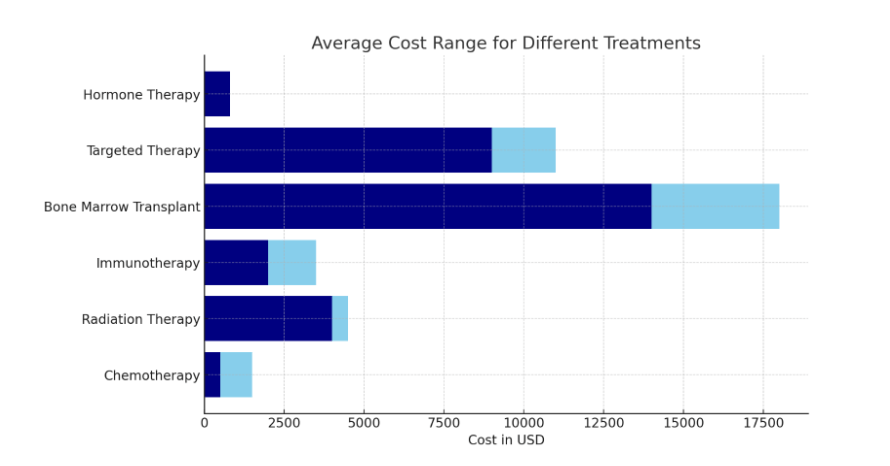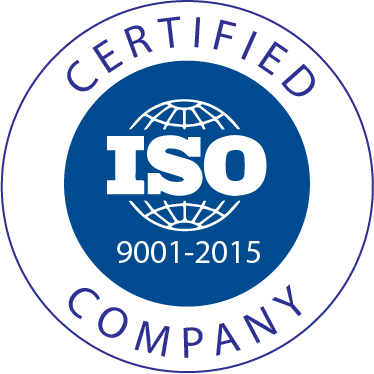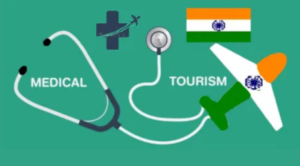Cancer treatment cost in India is a significant concern for many individuals and families grappling with the diagnosis of this formidable disease. Cancer ranks among the foremost causes of death worldwide, presenting individuals with not just physical and emotional obstacles but also significant financial burdens. This blog aims to provide information about the various aspects surrounding cancer treatment costs in India, elucidating financial support options and shed light on how UniMediks can assist you through this challenging journey.
Understanding Cancer
Cancer, a complex and pervasive disease, manifests through the uncontrolled proliferation and dissemination of aberrant cells within the body. Its diverse nature encompasses various malignancies, each distinguished by unique characteristics, symptoms, and treatment regimens. From breast and lung cancer to leukemia and melanoma, the impact of cancer reverberates across the globe, posing formidable health challenges and emotional strains on individuals and families alike. Early detection facilitated by screenings and diagnostic procedures is vital to improving outcomes, enabling timely intervention, and providing access to appropriate treatment modalities. However, despite significant strides in medical research and therapeutic interventions, cancer remains a leading cause of morbidity and mortality on a global scale. This emphasizes the necessity for thorough prevention strategies, pioneering treatments, and supportive care to ease the burden on patients and their families.
The relentless pursuit of advancements in cancer research and therapy is indispensable in confronting the multifaceted challenges posed by this disease. While breakthroughs in medical science have contributed to improved survival rates and enhanced treatment modalities, cancer continues to take a substantial toll on society. Thus, an ongoing imperative exists for continued investment in comprehensive prevention strategies, early detection initiatives, and innovative treatment options.
Equally vital is the provision of supportive care to alleviate the physical, emotional, and financial burdens experienced by individuals and families impacted by cancer. By fostering collaborative efforts across disciplines and prioritizing patient-centered approaches, we can endeavour to mitigate the impact of cancer, ultimately working towards a future where the burden of this disease is significantly reduced, if not eradicated.
Deciphering Cancer: Varieties, Symptoms, and Diagnosis
| Type of Cancer | Description | Common Symptoms |
|---|---|---|
| Breast Cancer | Most common cancer among women worldwide. | Lump or swelling in the breast, changes in size or shape. |
| Cervical Cancer | Affects the cervix, the lower part of the uterus. | Irregular vaginal bleeding, pelvic discomfort. |
| Blood Cancer | Stems from the blood-forming tissues. | Persistent fatigue, unexplained weight loss, frequent infections. |
| Lung Cancer | Characterized by abnormal lung cell growth. | Chronic cough, chest pain, difficulty breathing. |
| Oral Cancer | It affects the mouth and throat. | Mouth sores, persistent mouth pain, difficulty swallowing. |
| Skin Cancer | Develops in the pigment-producing cells of the skin. | Changes in the skin, new moles, changes in existing moles. |
How much does Cancer treatment cost in India
The expense of cancer treatment in India varies widely depending on the type of treatment, the stage and type of cancer, the hospital chosen, and the city in which the treatment is administered. Here is a general overview of the costs associated with different kinds of cancer treatments in India:
- Chemotherapy: The cost of chemotherapy varies significantly depending on the drugs used, the frequency of treatment cycles, and the overall number of cycles required. Each cycle can cost from 500-1500 USD.
- Radiation Therapy: The cost of radiation therapy ranges from 4000-4500 USD. Advanced techniques like IMRT (Intensity-Modulated Radiation Therapy) and IGRT (Image-Guided Radiation Therapy) could be more expensive.
- Immunotherapy: It is one of the more expensive treatments, as it stimulates the immune system to fight cancer. Prices for immunotherapy can range from 2000-3500 USD entire course, depending on the drugs and the number of cycles.
- Bone Marrow Transplant: This procedure can be particularly costly, with prices ranging from 14000-18000 USD. The cost depends mainly on the type of transplant (autologous or allogeneic) and the hospital.
- Targeted Therapy: Drugs used in targeted therapy are specifically designed to attack cancer cells. The costs for targeted therapy can vary widely but typically range from 9000-11000 USD per month.
- Hormone Therapy: This therapy is used primarily for cancers that are sensitive to hormones, like some breast and prostate cancers. The monthly cost varies between 500-800 USD, depending on the prescribed medications.
Summary of the associated treatment cost
| Treatment Type | Associated Average Cost (USD) |
|---|---|
| Chemotherapy | 500-1,500 |
| Radiation Therapy | 4,000-4,500 |
| Immunotherapy | 2,000-3,500 |
| Bone Marrow Transplant | 14,000-18,000 |
| Targeted Therapy | 9,000-11,000 |
| Hormone Therapy | 800 |

These costs can also vary based on whether the patient has health insurance covering cancer treatment, the type of hospital (private vs. government), and the city where the treatment is being given. High-end facilities in metro cities like Mumbai, Delhi, or Bangalore charge more than smaller cities or government hospitals. Despite these costs, India is often less expensive for assessing cancer treatment costs than many Western countries, making it a destination for medical tourism.
The Indian Healthcare System: A Cost-Effective Alternative
Healthcare system of India presents a compelling alternative for cancer treatment, drawing patients internationally with its cost-effective solutions. Compared to Western nations, India offers significantly lower treatment costs without compromising quality. Renowned for its world-class medical facilities and proficient healthcare professionals, India stands out as a beacon of hope for those seeking affordable yet top-notch cancer care. Moreover, thriving medical tourism industry of India underscores the allure of seeking treatment in the country, where patients can access high-quality healthcare services at a fraction of the cost they would experience elsewhere.
The presence of experienced oncologists and cutting-edge infrastructure further bolsters reputation of India as a preferred destination for cancer treatment. Patients benefit from the expertise of skilled healthcare professional’s adept at managing various types and stages of cancer. The cutting-edge facilities and advanced technology present in Indian hospitals guarantee patients receive optimal care and access to innovative treatment methods. Thus, healthcare system of India offers cost-effective solutions and ensures patients receive world-class cancer treatment tailored to their needs, making it a sought-after destination for individuals seeking affordable yet high-quality medical care.
The Importance of Timely Consultation
In the landscape of cancer treatment, the significance of timely consultation cannot be overstated. Early detection of cancer is pivotal in shaping the disease’s course, as research consistently shows that early detection leads to improved prognosis and treatment effectiveness. Regular screenings and proactive medical attention enable healthcare professionals to detect cancer in its nascent stages when it is more manageable and localized. This early intervention enhances the effectiveness of treatment and reduces the likelihood of cancer progression, sparing patients from the need for more aggressive and costly interventions.
Consulting with healthcare professionals at the first signs of symptoms or risk factors empowers individuals to prioritize their health and well-being proactively. By promptly addressing any signs or symptoms that may indicate the presence of cancer, patients can expedite the diagnostic process and initiate treatment without delay. Timely consultation allows healthcare providers to devise personalized treatment plans tailored to the individual’s unique circumstances, maximizing the likelihood of successful outcomes. Moreover, early intervention can alleviate the emotional burden associated with a cancer diagnosis, providing patients and their families with a sense of empowerment and control over their health journey. Ultimately, the importance of timely consultation extends beyond mere medical necessity, offering patients the opportunity to confront cancer head-on and embark on a path towards healing and recovery.
Advancements in Medical Research Bring Hope
Medical research advancements are pivotal in shaping the cancer treatment landscape, infusing hope into the lives of the patient globally. Breakthroughs in innovative therapies like immunotherapy and targeted therapy mark significant milestones in cancer care, presenting promising avenues for enhanced survival rates and improved quality of life. These cutting-edge treatments represent a paradigm shift in oncology, offering patients novel therapeutic options that target cancer cells with greater precision while minimizing adverse effects on healthy tissues. Furthermore, the relentless pursuit of scientific inquiry through clinical trials and research initiatives catalyzes progress, driving the development of increasingly effective and personalized treatment modalities tailored to the needs of the patient.
Cancer treatment trajectory is undeniably shaped by the relentless pursuit of knowledge and innovation in medical research. As researchers unravel the complexities of cancer biology and therapeutic interventions, they unlock new possibilities for combating the disease on multiple fronts. Medical researchers strive to bridge the gap between scientific discovery and clinical application through collaborative and interdisciplinary approaches, translating promising findings into tangible patient benefits. Consequently, advancements in medical research offer hope for improved treatment outcomes and inspire optimism for a future where cancer may be more effectively managed if not eradicated.
Factors Affecting Cancer Treatment Costs in India
Physical Location of Treatment Center:
- The geographic location significantly influences the costs associated with cancer treatment in India.
- Treatment centers in metropolitan cities may have higher expenses due to higher operational costs, including rent and salaries.
Type of Treatment Modalities Employed:
- The choice of treatment modalities, such as surgery, chemotherapy, radiation therapy, or a combination, can significantly affect the overall cost.
- Advanced treatments like immunotherapy or targeted therapy may be more expensive but offer improved outcomes.
Stage of Cancer:
- The stage at which cancer is diagnosed influences treatment complexity and duration, consequently affecting costs.
- Early-stage cancers may require less aggressive treatment, leading to lower expenses than advanced-stage cancers requiring extensive therapies.
Type of Hospital and Accommodation Chosen:
- The choice between public and private hospitals can significantly impact treatment expenses.
- Private hospitals often offer more amenities and personalized care but may have a higher price tag.
Specific Type and Stage of Cancer:
- Different types of cancer require tailored treatment approaches, each with its associated costs.
- Advanced stages of cancer often demand comprehensive treatments involving multiple modalities, contributing to higher overall expenses.
Numerous factors impact the cost of cancer treatment in India, spanning from the location and type of treatment center to the distinct characteristics of the disease. Grasping understanding of these factors is essential for patients and their families to make informed choices concerning treatment options and financial preparations.
The Average Cost: Balancing Quality and Affordability
When contemplating cancer treatment costs in India, striking a delicate balance between quality and affordability becomes paramount. While affordability is a primary concern for many patients, it is imperative to maintain treatment quality and patient safety in the pursuit of cost-effective options. Therefore, individuals must meticulously evaluate healthcare facilities and treatment packages, ensuring they receive the highest standard of care within their financial constraints. This approach enables patients to access comprehensive cancer treatment while safeguarding against potential treatment efficacy or outcomes compromises.
Patients gain empowerment by exploring a wide array of healthcare options, enabling them to make informed decisions that fit their budgetary constraints while preserving the quality of care they receive. By carefully weighing the costs and benefits of different treatment facilities and packages, individuals can optimize their cancer treatment journey, ensuring they receive the best care while managing expenses effectively. Ultimately, achieving a harmonious equilibrium between quality and affordability empowers patients to navigate the intricacies of cancer treatment costs in India with assurance and peace, ensuring their healthcare requirements are fulfilled without excessive financial strain.
UniMediks: Guiding You Through Cancer Treatment Costs
UniMediks emerges as a steadfast ally for individuals grappling with the intricate web of cancer treatment costs in India. Backed by a devoted team of healthcare experts and financial advisors, UniMediks extends personalized support and guidance throughout treatment. Whether navigating the myriad treatment options or delving into financial assistance avenues, UniMediks remains steadfast in its commitment to easing the burden of cancer treatment expenses. With a focus on empowerment and education, UniMediks provides patients with the necessary knowledge and resources to make decisions about their healthcare journey.
Moreover, UniMediks extends beyond simple guidance, providing a wide range of tailored offerings to meet the varied needs of patients. From assistance with insurance claims and financial planning to coordinating treatment logistics and providing emotional support, UniMediks ensures patients receive holistic care at every step. Utilizing its vast network of healthcare providers and partnerships, UniMediks simplifies the treatment process, easing the stress and uncertainties of managing cancer treatment expenses. In essence, it is a steadfast companion, guiding individuals through the complexities of cancer treatment expenses with compassion, expertise, and unwavering support by connecting foreign patients so that they receive best health facility at affordable cost.
Conclusion
Cancer treatment cost in India presents a multifaceted challenge for patients and their families, encompassing financial, emotional, and logistical aspects. However, with the right resources and support systems, individuals can navigate this journey with confidence and resilience, knowing they are not alone in facing these challenges. UniMediks stands as a beacon of support, offering comprehensive assistance and guidance every step of the way. By addressing financial considerations and providing access to quality cancer care, UniMediks empowers patients to focus on their health and well-being without the added burden of economic stress. Together, with the collective efforts of healthcare providers, support networks, and organizations like UniMediks, we can overcome the obstacles posed by cancer treatment costs and embrace a future filled with hope, healing, and the promise of a better tomorrow for all those affected by this formidable disease.















